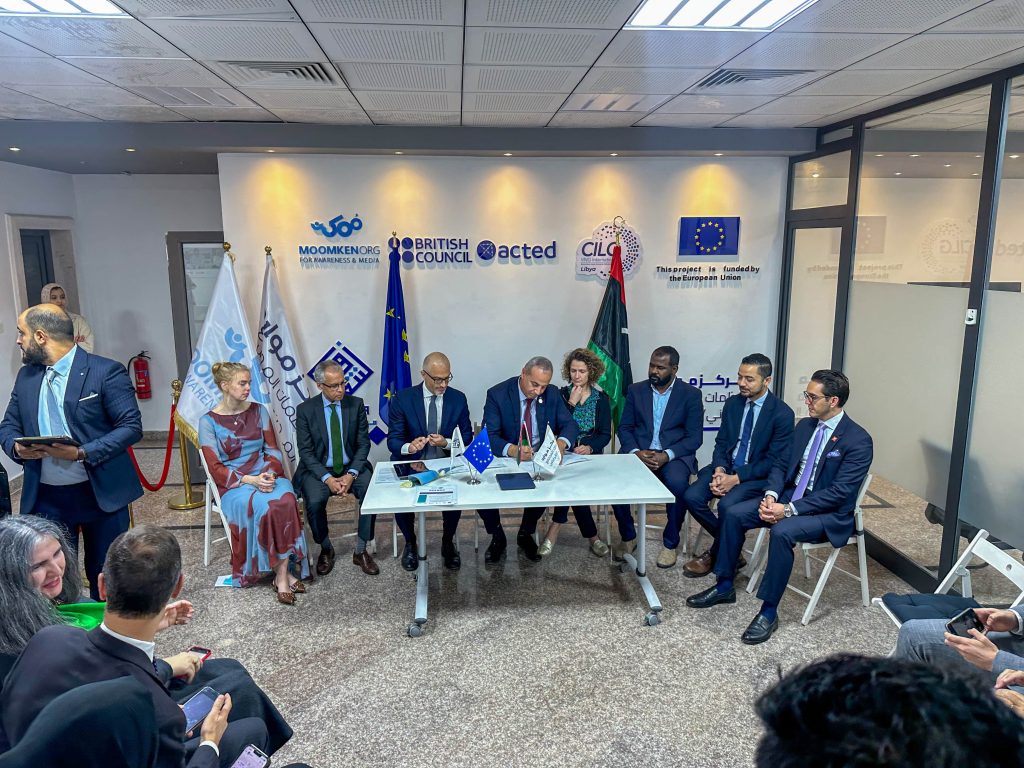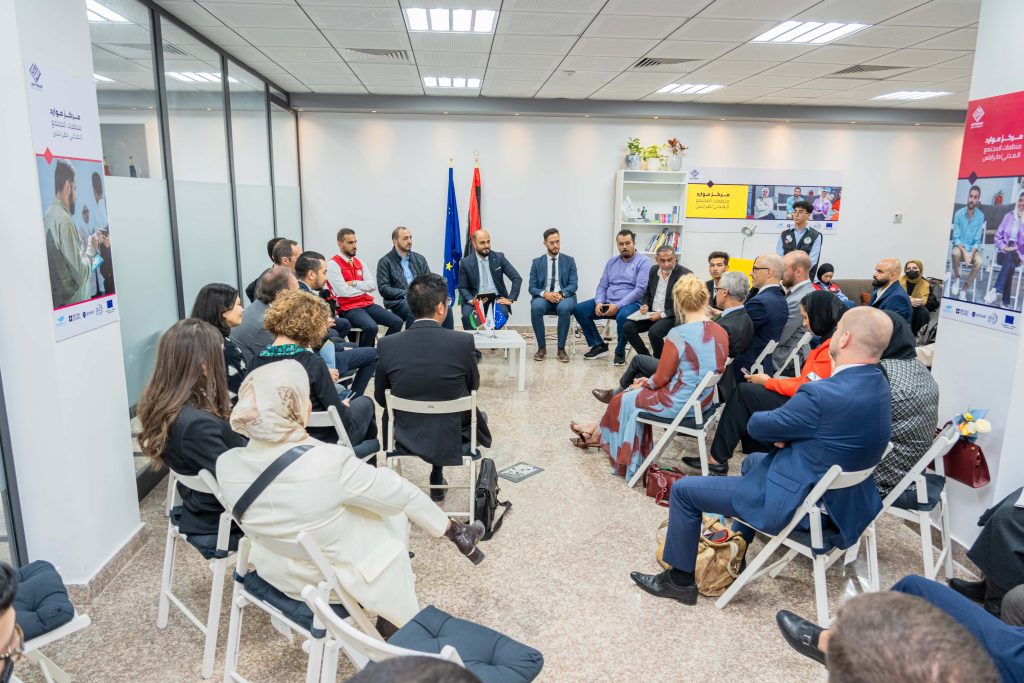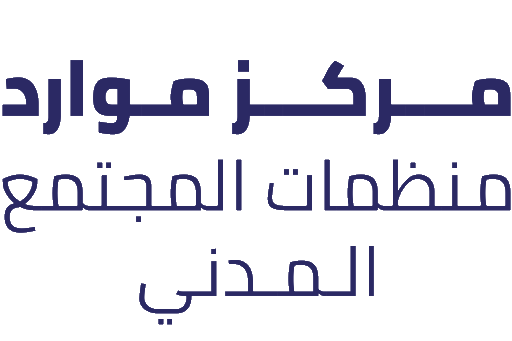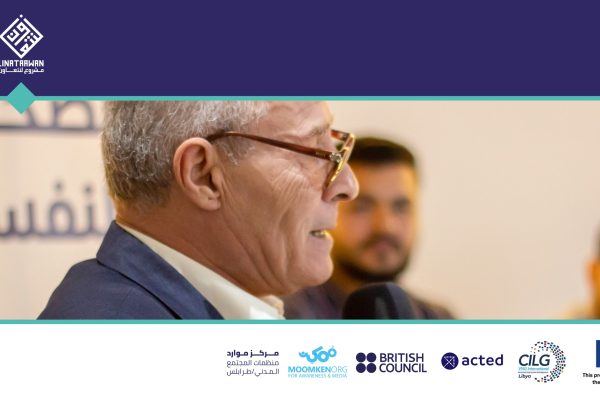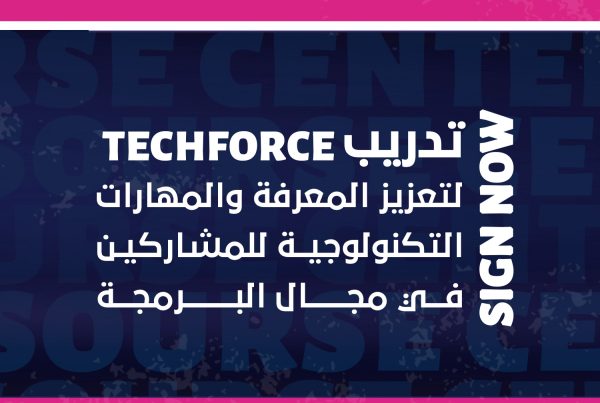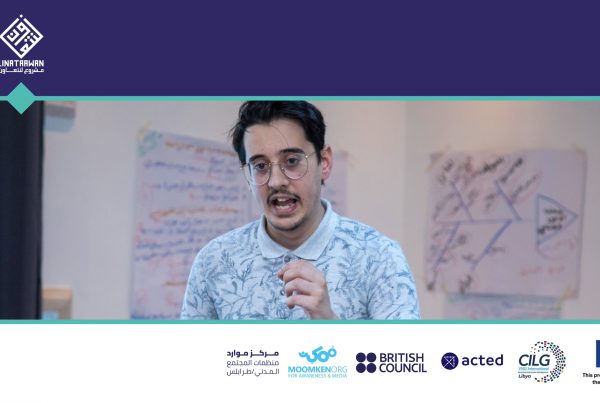Tripoli, Libya, November 28, 2024 – The European Union and the British Council, in partnership with Acted and CILG-VNGi, launched today the second phase of the Linataawan Phase II – EU for Civil Society in Libya project with a signing ceremony in Tripoli. This event, attended by the European Union Ambassador Nicola Orlando, French Ambassador Mostafa Mihraje, Joëlle Blankestijn from the Embassy of the Netherlands, as well as Libyan project partners and local civil society organisations, marked the formal continuation of this important project, which aims to strengthen civil society, improve democratic governance, and promote local development across Libya.
The first phase of the Linataawan project made significant strides in empowering Libyan civil society. Over the course of the first phase, implemented from December 2019 to December 2023, hundreds of individuals from Libyan CSOs, local authorities and community groups were trained, enhancing their ability to engage meaningfully in local governance and decision-making.
The second phase of Linataawan builds upon the achievements of the initial phase, focusing on capacity building, community resilience and promoting inclusive governance. By continuing to work with local communities, CSOs and municipal authorities, as well as the private sector, this project aims to build a more transparent, accountable, and resilient governance system in Libya. Partners will continue focusing on strengthening democratic governance and enhancing the capacity of civil society to contribute to local development, respecting Libyan culture and sovereignty.
As part of the launch, the Tripoli Resource Centre (RC), managed by the Libyan CSO Moomken, has been reopened. This centre will continue to serve as a key space for collaboration, capacity building and community engagement. With existing Resource Centres already operating in Tripoli and Benghazi, the project’s second phase will see the opening of two new Resource Centres in the North- East and South of Libya, further expanding Linataawan’s reach and its efforts to empower civil society and support local communities.
Faisal Alnajah, Country Director of the British Council in Libya, emphasised the importance of this event, stating that “Today’s ceremony marks a crucial step in advancing Libya’s civil society. With the second phase, we will focus on strengthening local communities, empowering youth and women and enhancing transparency and active participation in public affairs. The reopening of the Tripoli Resource Centre and the expansion of new centres across the country will provide critical spaces for collaboration and citizen engagement, helping to build a more inclusive and resilient Libya.”
European Union Ambassador Nicola Orlando expressed the EU’s continued commitment to the project, commenting that “The European Union is proud to support the Linataawan project, which has already made considerable progress in strengthening the role of civil society in Libya. Through initiatives like the Linataawan project, Libyan CSOs can deliver essential services to Libyan communities, fostering local development and address the unique challenges faced by these communities. This project extends beyond Tripoli, with the new resources centres set to address specific community needs in the south and the east of Libya. These centres are hubs of collaboration and innovation where organisations can develop projects, build capacity, and deliver impactful services. Ultimately, the EU supports Libyan CSOs as drivers of positive change, capable of improving lives, fostering stability and creating opportunities for growth.”
For more information, please contact: linataawan@britishcouncil.org
